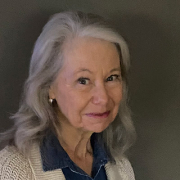Celebrating the Working Caregiver
Celebrating the Working Caregiver
October is National Work and Family Month. The UK elder care program would like to recognize and thank all of our working caregivers. According to the Family Caregiver Alliance, more than 1 in 6 working Americans are caregivers. Being a caregiver for an older loved one is a daunting task. Being a working caregiver can be overwhelming.
Everyone in the workforce, at some point, will face the challenges of caregiving – they just might not realize it now. As Roselyn Carter said, “There are only four kinds of people in the world: those who have been caregivers, those who are currently caregivers, those who will be caregivers and those who will need a caregiver."
Caregivers take on a variety of responsibilities to help their older loved one — helping navigate the health care system, driving to doctors’ appointments, managing medication, providing personal care, and searching for in-home care, adult day centers or alternative housing options. This is all in addition to other "behind-the-scenes" tasks. Caregiving is a second job — no doubt about that.
Sixty-nine percent of working caregivers — who are mostly women — must rework their schedules, cut their hours or take unpaid leave. There is no clear path to finding the right balance between meeting work obligations, family responsibilities, career development and personal fulfillment. Caregivers struggle between their own professional and personal responsibilities and caring for their older loved one.
Caregivers can see the following consequences on their families and careers:
- Time lost from work leading to loss of income
- Lower productivity
- Lost career opportunities
- Lower future earnings
- Job changes leading to losses in tenure and seniority
It’s a cascading effect. Reducing or giving up a paycheck as well as future Social Security benefits, losing job security, career mobility and employment-related benefits such as health insurance and retirement plans can have a negative consequence for the caregiver. But UK elder care is here to help.
We are hosting a Senior Caregiving Conference Friday, November 30. The Senior Caregiving Conference is made up of two great events:
- Senior resource fair — the resource fair will feature 40+ exhibitors who can provide community elder care services, support, and information on in-home care, senior housing, health care, elder law and much more to help you in your caregiving role. The Senior Resource Fair provides an opportunity to find the senior care services you need to help you in your caregiver responsibilities. We don’t want to reach the point of physical or emotional burnout. There may come a time when we are not able to provide all our loved one needs. It can be a difficult decision to make. But finding other care options is not only crucial for you, but also for your loved one.
- Dementia care workshop — the workshop will feature Teepa Snow, a nationally recognized dementia care educator. This event will provide you with the education and information you need when caring for a loved one with dementia. Dementia is a progressive disease and knowing what the future holds will help you make informed decisions.
Caregiving for an older loved is rewarding; it’s an honor. But is can also be very difficult. Take care of yourself so you can take care of the person you love.
Terri Weber
